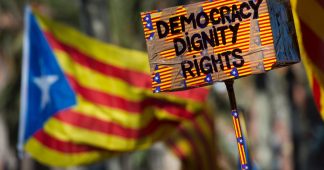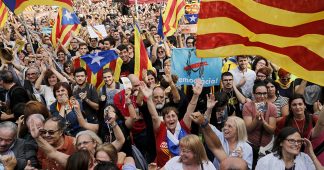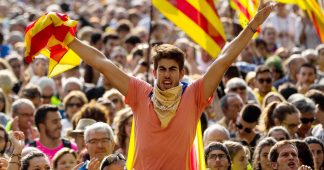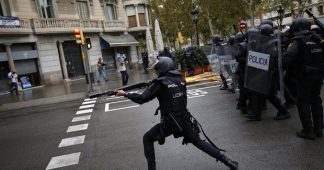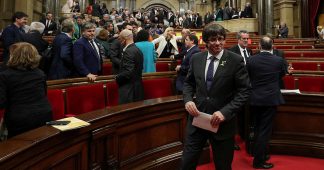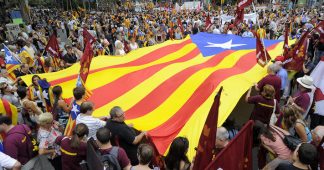Podemos has decided to take control of its Catalan branch, Podem, and order a regional grassroots ballot to decide the party’s position in the upcoming regional elections, called by Spanish Prime Minister Mariano Rajoy using his Article 155 powers to suspend home rule.
A statement from the national leadership—likely written by Pablo Iglesias in person—said the regional leader of Podem, Albano Dante Fachin, had not informed national HQ of how he and his MPs intended to vote on Friday during the independence ballot in the regional chamber.
“One of our female MPs did not vote against the Declaration of Independence and publicly welcomed the ‘new Catalan republic'”, said the statement, a copy of which was obtained by The Spain Report.
Mr. Fachin cast a ballot during the independence vote in the Catalan Parliament on Friday but did not reveal which way he had voted, as MPs from another sector of the party made sure to do.
On Sunday, the anticapitalist sector of Podemos published a statement that was widely interpreted in the media—and later by the national Podemos leadership—as recognising the new republic.
“Yesterday we read statements from our colleague the secretary general of Podem in Catalonia”, said the Podemos statement: “in which he signalled that taking part in the elections on December 21 next might be a contradiction, and he expressed his intention to form a block with other political forces”.
On Saturday, Mr. Fachin had suggested during a radio interview that he might take Podem over to the separatist camp for the new ballot.
There are several related Podemos groups in Catalonia: Podem (Podemos Catalonia), Catalunya en Común (“Catalonia In Common”), Catalunya Si Que Es Pot (“Catalonia Yes We Can”) and En Comun Podem (“In Common We Can”).
Podemos members in Catalonia will now be asked at a ballot if they want to form a new coalition with Catalunya en Común and “sister political forces” that do not support “either the declaration of independence or the application of Article 155”.
“I believe”, said the statement—the first-person subject pointing to Mr. Iglesias as the author—”[…] we have shown in this question a bravery and coherence without precedent on the Spanish left of all time [sic]”.
